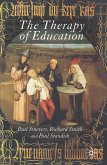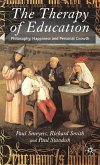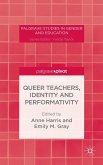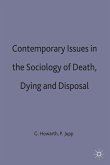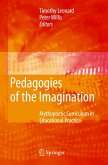The idea of education as therapy goes back to ancient times. Today, it is understood that the role of the teacher comprises aspects of therapy directed towards the child. But to what extent should this relationship be developed, and what are its concomitant responsibilities? This book offers a challenging philosophical approach to these issues.
In recent years ideas about therapy have found their way increasingly into educational practice: there is Circle Time in the elementary school and a new emphasis on self-esteem, there is assertiveness training and stress management for adults, and the bookshop shelves are heavy with volumes on self-help. In a different vein, and since ancient times, education has itself often been thought of as a kind of therapy, at minimum a cure for bad intellectual and moral habits, and sometimes a progressive working on the self with philosophy its essential ally. Yet formal education today, with its compulsive fixation on assessment and league-tables, seems, ironically enough, to need therapy of its own.
This book examines the many connections between education and therapy, critically but sympathetically. It brings to bear on areas of confusion and mystification the philosophical attention that has sometimes been thought of as potentially therapeutic and conducive to personal growth and flourishing.
In recent years ideas about therapy have found their way increasingly into educational practice: there is Circle Time in the elementary school and a new emphasis on self-esteem, there is assertiveness training and stress management for adults, and the bookshop shelves are heavy with volumes on self-help. In a different vein, and since ancient times, education has itself often been thought of as a kind of therapy, at minimum a cure for bad intellectual and moral habits, and sometimes a progressive working on the self with philosophy its essential ally. Yet formal education today, with its compulsive fixation on assessment and league-tables, seems, ironically enough, to need therapy of its own.
This book examines the many connections between education and therapy, critically but sympathetically. It brings to bear on areas of confusion and mystification the philosophical attention that has sometimes been thought of as potentially therapeutic and conducive to personal growth and flourishing.
'At a time when it seems that everyone, at whatever level of society, has fallen behind the banner of Business, blindly caught up in its ruthless and deadening rationality, it is such a relief to find writers so able to resist the trend. They remind us of a humane culture we seem to have forgotten, and their intelligent and illuminating understanding of the relations between education and 'therapy' sweeps away many of the absurdities that have over the past two or three decades invaded both.' David Smail former Special Professor in Clinical Psychology at the University of Nottingham, and author of Illusion and Reality: the Meaning of Anxiety and Taking Care: an Alternative to Therapy.


